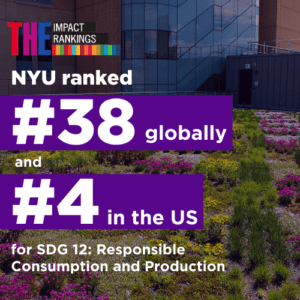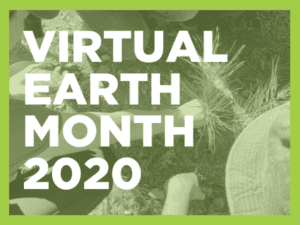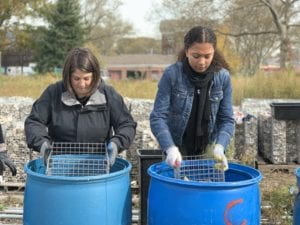 NYU ranked #38 globally and #4 in the US on Responsible Consumption and Production through the Times Higher Education Impact Rankings, which assess universities against the United Nations’ Sustainable Development Goals (SDGs).
NYU ranked #38 globally and #4 in the US on Responsible Consumption and Production through the Times Higher Education Impact Rankings, which assess universities against the United Nations’ Sustainable Development Goals (SDGs).
SDG 12: Responsible Consumption and Production measures how universities are working towards an efficient use of resources and the minimization of waste.
Through initiatives such as the Cool Food Pledge, waste mitigation strategies like the Water Bottle Purchasing Policy, and ongoing efforts to increase sustainable procurement practices, NYU has demonstrated our commitment to ethically sourcing goods and increasing upstream solutions to waste.
The 2021 Impact Rankings is the third edition and the overall ranking includes 1,115 universities from 94 countries/regions. This ranking is based on the data NYU reports through AASHE STARS, which captures information about how environmentally responsible a school’s policies and practices are, and how sustainability is embedded into campus life.
Sustainability at NYU is a team effort. We thank our partners especially in Procurement, Dining, and Grounds and Waste Management who helped us achieve this particular recognition.




